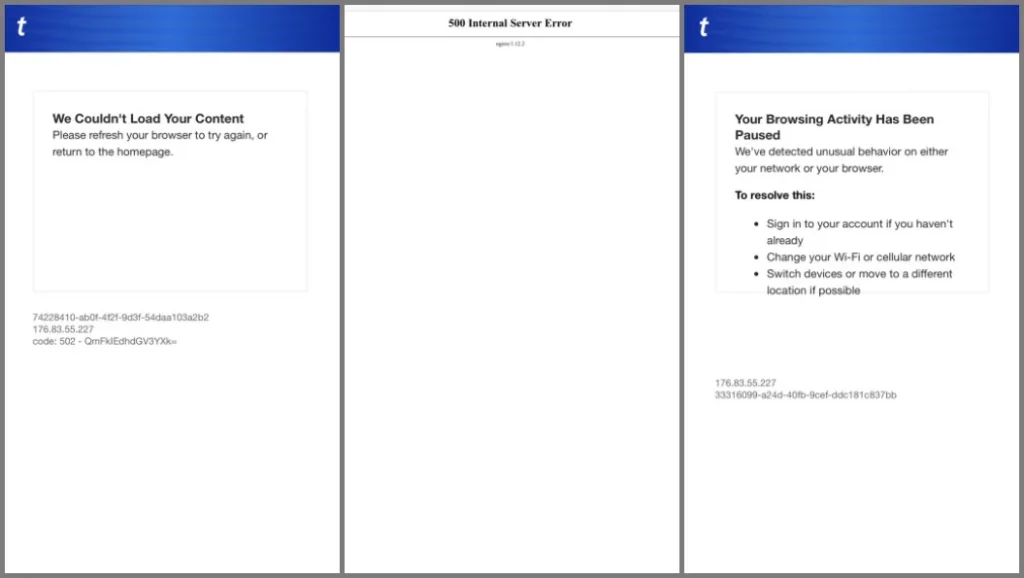The Importance Of Middle Managers: A Key To Company And Employee Success

Table of Contents
Bridging the Communication Gap
Middle managers act as a vital bridge, translating high-level strategic goals into actionable tasks for teams. They ensure consistent communication flows both up and down the organizational hierarchy. Effective middle managers understand the importance of clear, concise, and consistent communication to avoid misunderstandings and ensure everyone is working towards the same objectives. Poor communication from middle management can lead to decreased productivity, missed deadlines, and ultimately, project failure.
Effective Communication Strategies:
- Regular team meetings: Holding regular meetings allows for the dissemination of information, updates on project progress, and the opportunity for team members to voice concerns or ask questions. These meetings should be structured and efficient, avoiding information overload.
- Transparent communication: Openly sharing company performance data, goals, and challenges fosters trust and transparency. This allows employees to understand their role in the bigger picture and feel more connected to the organization's success.
- Active listening: Middle managers should actively listen to employee concerns and provide constructive feedback. This demonstrates respect and creates a safe space for open dialogue. Active listening is a critical skill for effective middle management.
- Utilizing various communication channels: Employing a mix of communication channels, such as email for formal announcements, instant messaging for quick updates, and face-to-face meetings for sensitive discussions, ensures information reaches the team effectively.
- Proactive identification and resolution of communication breakdowns: Middle managers should be proactive in identifying and addressing any communication gaps or misunderstandings before they escalate into larger problems. This requires vigilance and a commitment to open communication.
Driving Employee Engagement and Motivation
Middle managers play a pivotal role in fostering a positive work environment and boosting employee morale. Their leadership style directly impacts team productivity and retention. Engaged employees are more productive, innovative, and committed to the organization's success. Middle managers are directly responsible for fostering this engagement.
Boosting Employee Morale:
- Regular recognition and appreciation: Acknowledging and rewarding employee contributions, both big and small, boosts morale and motivates individuals to continue performing at a high level. Regular positive reinforcement is crucial.
- Opportunities for professional development: Providing opportunities for training, mentorship, and career advancement demonstrates a commitment to employee growth and development, leading to increased job satisfaction and retention.
- Supportive and inclusive team environment: Creating a welcoming and inclusive team environment where everyone feels valued and respected is essential for boosting morale and productivity. This includes actively addressing any instances of discrimination or harassment.
- Promoting work-life balance: Encouraging a healthy work-life balance helps prevent burnout and improves employee well-being, leading to increased productivity and reduced absenteeism.
- Addressing employee concerns promptly and fairly: Responding to employee concerns quickly and fairly demonstrates respect and builds trust, creating a positive and productive work environment.
Mentoring and Developing Future Leaders
Middle managers often serve as mentors and coaches for their team members, fostering talent development within the organization. This contributes to a strong succession plan and organizational sustainability. Investing in the development of future leaders is crucial for long-term organizational success.
Talent Development Strategies:
- Regular feedback and performance reviews: Providing regular feedback and conducting performance reviews helps employees understand their strengths and weaknesses, allowing them to improve their performance and grow professionally.
- Identifying and nurturing high-potential employees: Middle managers play a crucial role in identifying and nurturing employees with high potential, providing them with opportunities for advancement and leadership roles.
- Offering training and development opportunities: Providing access to training and development programs helps employees enhance their skills and knowledge, preparing them for future opportunities.
- Delegating tasks to empower employees: Delegating tasks empowers employees and builds their confidence, allowing them to develop new skills and take on more responsibility.
- Creating a culture of continuous learning: Fostering a culture of continuous learning and improvement encourages employees to seek out new knowledge and skills, benefiting both the individual and the organization.
Improving Operational Efficiency and Productivity
Effective middle managers streamline workflows, optimize resource allocation, and drive operational efficiency, leading to increased productivity and improved bottom-line results. Efficient operations are essential for organizational success. Middle managers are at the forefront of improving these operations.
Efficiency and Productivity Techniques:
- Implementing effective project management methodologies: Utilizing project management methodologies like Agile or Scrum helps to ensure projects are completed on time and within budget.
- Utilizing technology and tools: Leveraging technology and productivity tools can significantly improve efficiency and reduce wasted time.
- Streamlining processes: Identifying and eliminating bottlenecks in workflows improves efficiency and productivity, allowing teams to accomplish more with less effort.
- Monitoring performance metrics: Tracking key performance indicators (KPIs) helps middle managers identify areas for improvement and make data-driven decisions.
- Promoting collaboration and teamwork: Fostering a collaborative and team-oriented environment improves communication and efficiency, allowing teams to work together effectively to achieve common goals.
Conclusion
In conclusion, the importance of middle managers in achieving both company and employee success cannot be overstated. Their role extends beyond mere task delegation; they are crucial for effective communication, employee engagement, talent development, and operational efficiency. Investing in training and development for middle managers is investing in the future success of your organization. Don't underestimate the power of your middle management team; nurture their skills and empower them to lead your company to greater heights. Recognize the true value of your middle managers and unlock the potential within your organization. Investing in your middle management is investing in your future.

Featured Posts
-
 Historical Find 13th Century Construction At Binnenhof
May 28, 2025
Historical Find 13th Century Construction At Binnenhof
May 28, 2025 -
 Cbs Announces Jennifer Lopez As Host For 2025 Amas
May 28, 2025
Cbs Announces Jennifer Lopez As Host For 2025 Amas
May 28, 2025 -
 Pepper Premiere Programacion Y Noticias De Pepper 96 6 Fm
May 28, 2025
Pepper Premiere Programacion Y Noticias De Pepper 96 6 Fm
May 28, 2025 -
 Futbolun Sueperstari Cristiano Ronaldo Nun Marka Degerinin Sirri
May 28, 2025
Futbolun Sueperstari Cristiano Ronaldo Nun Marka Degerinin Sirri
May 28, 2025 -
 The Rayan Cherki To Liverpool Transfer Saga
May 28, 2025
The Rayan Cherki To Liverpool Transfer Saga
May 28, 2025
Latest Posts
-
 Axe Ceremonia 2025 Cancelado Reclama Tu Reembolso En Ticketmaster
May 30, 2025
Axe Ceremonia 2025 Cancelado Reclama Tu Reembolso En Ticketmaster
May 30, 2025 -
 Ticketmaster Proceso De Reembolso Por Cancelacion Del Axe Ceremonia 2025
May 30, 2025
Ticketmaster Proceso De Reembolso Por Cancelacion Del Axe Ceremonia 2025
May 30, 2025 -
 Solicitar Reembolso Cancelacion Festival Axe Ceremonia 2025 Ticketmaster
May 30, 2025
Solicitar Reembolso Cancelacion Festival Axe Ceremonia 2025 Ticketmaster
May 30, 2025 -
 Reembolso De Boletos Axe Ceremonia 2025 Guia Completa Ticketmaster
May 30, 2025
Reembolso De Boletos Axe Ceremonia 2025 Guia Completa Ticketmaster
May 30, 2025 -
 Entradas Bad Bunny En Madrid Y Barcelona Preventa En Ticketmaster Y Live Nation
May 30, 2025
Entradas Bad Bunny En Madrid Y Barcelona Preventa En Ticketmaster Y Live Nation
May 30, 2025
